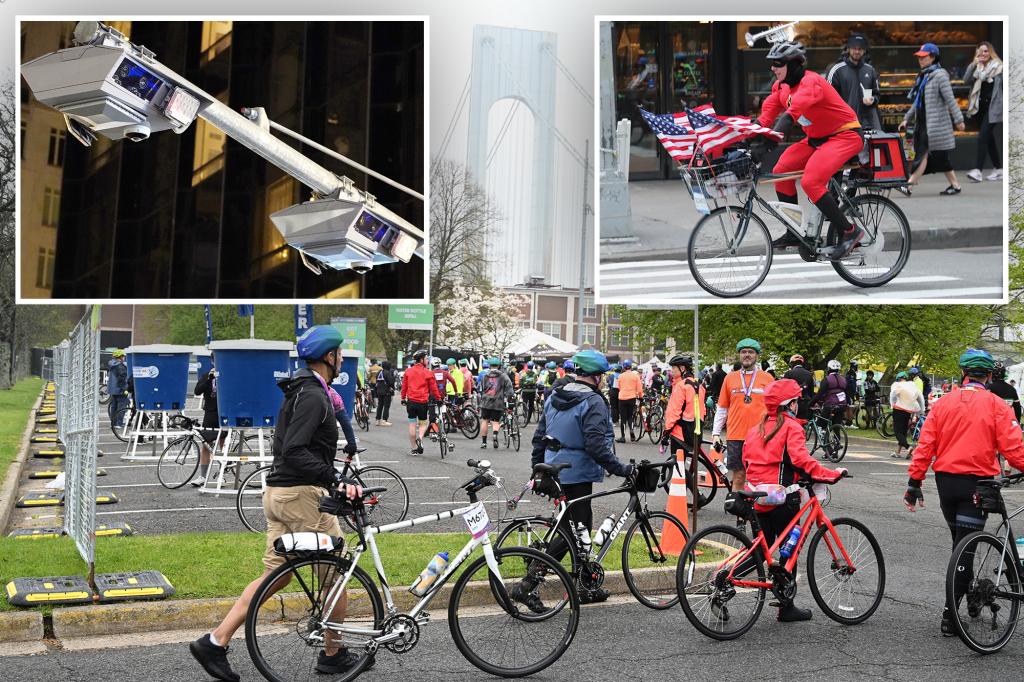Cyclists participating in the Five Boro Bike Tour expressed anger towards the Metropolitan Transportation Authority (MTA) over reported threats to charge the event for lost tolls from the Verrazzano Bridge. The MTA had previously proposed charging the New York City Marathon for tolls lost during the race but faced backlash, leading Governor Kathy Hochul to intervene. However, bike tour organizers fear they may still be subject to a large toll bill in the future, potentially impacting participation in the annual ride that draws around 32,000 people. Participants voiced concerns that increasing costs could deter people from joining the event.
Kenneth Podziba, CEO of the organization that organizes the bike tour, expressed concern that the MTA may hit them with a substantial bill for lost tolls without providing any evidence of actual revenue loss. Despite Governor Hochul’s intervention on behalf of the New York City Marathon, there has been no clarity on whether the bike tour will be exempt from similar charges in the future. Participants emphasized that the inclusion of the Verrazzano Bridge in the route was a key attraction of the event and cutting it out or increasing costs could impact their decision to participate.
MTA’s spokesperson stated that Bike New York would be reimbursing the MTA for expenses related to the event as it did in 2023, without confirming whether the bike tour would face additional toll charges in the coming years. The controversy over potential toll charges adds to existing concerns over congestion pricing in Manhattan, which will impose an extra $15 toll on drivers. Participants highlighted the appeal of cycling through all five boroughs, including crossing the Verrazzano Bridge, as a significant factor in their decision to take part in the event.
Participants shared their disappointment and frustration at the prospect of increased costs potentially impacting the future of the bike tour. Many emphasized the unique experience of riding through all five boroughs, including the Verrazzano Bridge crossing, as a key reason for their participation. The uncertainty surrounding potential toll charges and the impact of increased costs on participation was a significant concern for riders, who expressed hope that the event could continue in its current form without drastic changes.
Kenneth Podziba expressed hope that the bike tour would not have to make changes to the route due to lost toll costs, emphasizing the importance of including the Verrazzano Bridge crossing. Participants echoed the sentiment that changing or cutting out portions of the route would detract from the overall experience of the event. The ongoing uncertainty over potential toll charges and the lack of clarity from the MTA or Governor Hochul’s office have left organizers and participants worried about the future of the iconic bike tour and the impact on its longstanding tradition.













